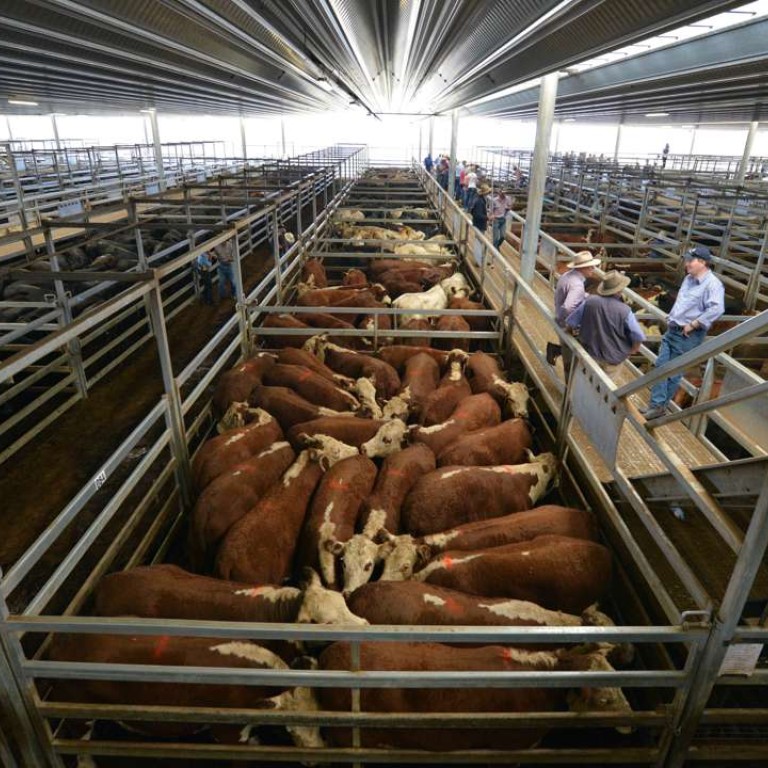
Australia’s rejection of Chinese-led bid for cattle-station business only hurts its own interests
Alex Malley says by blocking a Chinese-led consortium’s attempt to buy the country’s largest landholding, the government is undermining its stated goal to welcome foreign investment
Australia blocks largest private farm sale to Chinese over national interest
Last November, the government blocked the consortium’s original offer, citing concerns about the scale of the landholding, which covers 101,411 square kilometres and comprises 10 cattle stations. In particular, the proximity of the largest cattle station to a military testing range was listed as a reason to stop the sale. To address the government’s concerns, the company carved the cattle station of concern out of the broader sale package.

Australian PM invokes Deng Xiaoping in urging China to further open up
China-based Dakang Australia Holdings and Australian company Australian Rural Capital adjusted their purchase bid and appear to have addressed all the major issues, yet Morrison has again moved to block the sale. And now the consortium has officially withdrawn its bid, at least for the time being.
The greater principle at play is that foreign investment is very much needed in Australia
While many will understand concerns over a foreign company becoming the largest private landholder in Australia, the greater principle at play is that foreign investment is very much welcomed – and needed – in Australia. It’s why the free trade agreement has such a focus on facilitating investment flows.
Investors require certainty. They look for clarity around well-established criteria against which bids will be judged. They need to have confidence that, if you abide by the rules and follow the process, your investment will be approved.
There’s no doubt this decision sends mixed messages to potential investors.
It should be noted by the government that Australia is not the only market being targeted by Dakang – it recently acquired a controlling stake in Brazilian grains company Fiagril for US$290 million, a similar-sized investment to the proposed Kidman purchase. Given these events, it would be understandable if Dakang were to concentrate more of its efforts in Brazil if any subsequent bid were to be rejected.

Australia’s most expensive home pitched to Chinese buyers
There’s no doubt that foreign investment is vital for Australia’s future. For example, to double the real value of annual agricultural exports by 2050, Australia will require around A$400 billion (HK$2.3 trillion) to fund farm consolidation and changes in farm ownership, and an additional A$600 billion to lift farm productivity.
As a nation of 24 million people on the periphery of Asia, we can’t afford a ‘Fortress Australia’ mentality
We are well aware that the realities of Chinese foreign direct investment in Australia are actually quite modest. The US accounts for nearly a quarter of foreign direct investment, dwarfing China at just over 4 per cent.
The prime minister’s recent visit showed that many in Australia remain bullish over China’s economy and that China’s “new normal” provides significant, albeit somewhat different, opportunities for cooperation and growth. It showed that the Australian government and business leaders are keen to start making the free trade agreement work, attracting investment and partners from China.
The waters have now been muddied and the good work of the trade mission undone.
The decision to block this sale is being met with a level of incredulity in Australia’s business and financial circles, and the government itself has again stated its commitment to foreign investment.
When all is said and done, the free trade deal and the broader relationship between our two countries is about creating jobs. As a nation of 24 million people on the periphery of Asia, we simply can’t afford a “Fortress Australia” mentality.
As we work to integrate our economy with Asia as an integral player in the “Asian Century”, our attitude must be outward-looking. There is no time for mixed messages – Australia must be clearly open for business.
Alex Malley is chief executive of CPA Australia
